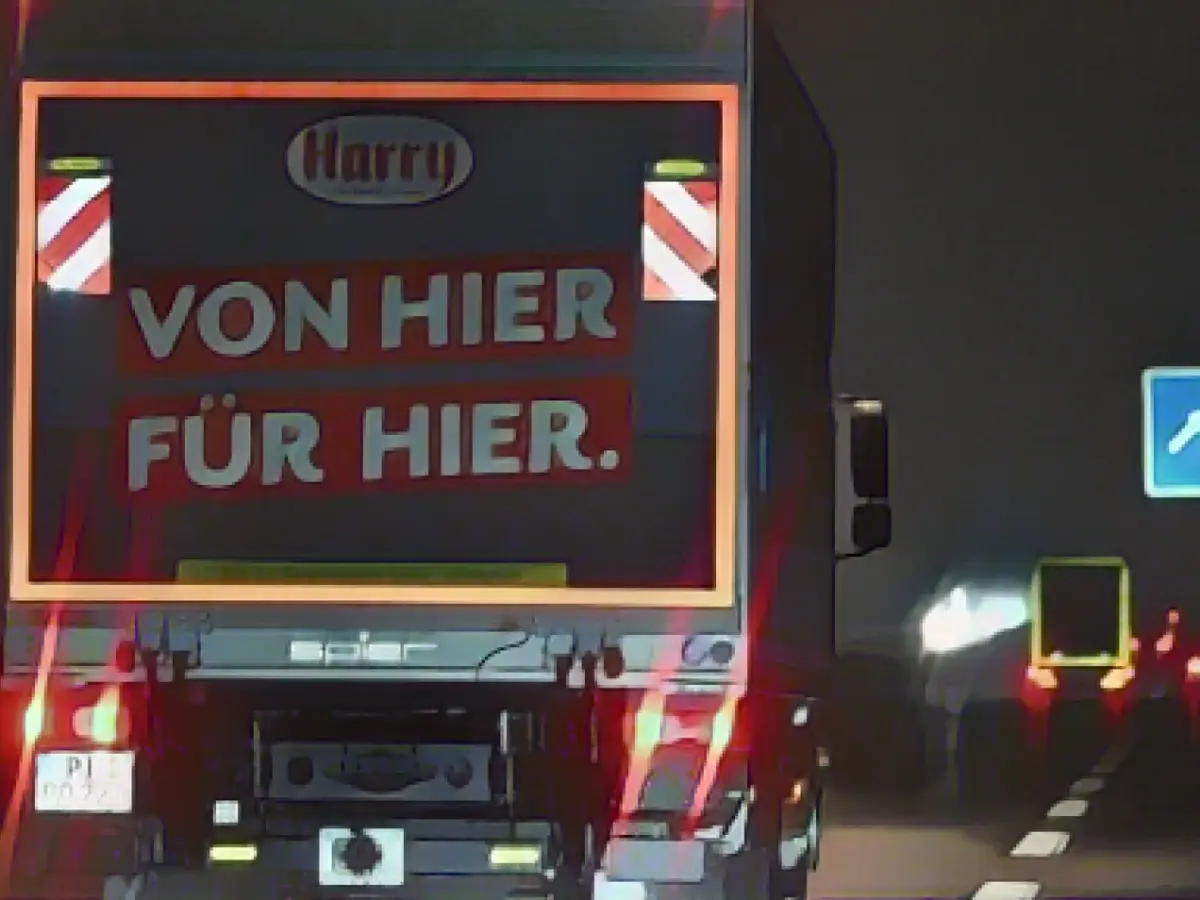Small and Medium-Sized Enterprises (SMEs) in Saxony-Anhalt view the hike in truck toll as a significant blunder. Peter Martini, from the Association of Small and Medium-Sized Enterprises in Saxony-Anhalt, labels this as an additional setback for the overall business location and the logistics sector especially. The carbon dioxide (CO2) surcharge, which nearly doubles the truck toll, targets the crucial logistics hub and consumers harshly, asserting that it might impact employment as well.
Since last Friday, a surcharge is applicable on truck tolls in federal highways and freeways. This surcharge equates to 200 euros per ton of CO2. According to Toll Collect, the federally-owned operator, this new toll charge will hike the toll cost per kilometer from 19 to 34.8 cents in the lowest truck class for instance. The German Federal Ministry of Transport pegs the effect on consumer prices as minimal.
Additional Insights:
The nationwide truck toll increase, irrespective of the region, poses several broader economic and environmental implications for SMEs and the logistics sector:
Economic Challenges:
- Operational expenses: Trucks' tolls, calculated on the toll route, vehicle weight, pollution class, and number of axles, escalate the operational costs for trucking companies. Higher transportation costs could affect the competitiveness of SMEs that count on road transport intensely for their logistics needs.
- Encouraging electrification: The toll system offering a lower rate for electric trucks from 2026 onwards incentivizes logistics companies to embrace electric vehicles. Total cost of ownership (TCO) calculations, including charging infrastructure and electricity costs, are major factors.
- Government support: Some federal states like Baden-Württemberg and North Rhine-Westphalia present state-level subsidies to promote the electrification switch of trucking companies. These schemes might help SMEs and more significant logistics companies to shoulder the initial investment costs for electric trucks.
Environmental Impacts:
- Lowering emissions: The CO2 surcharge is designed to decrease greenhouse gas emissions from heavy vehicles by charging more for diesel vehicles and less for electric ones. This could result in substantial reductions in emissions from the transportation sector, a leading contributor to global warming.
- Promotion of electric truck adoption: The toll exemption for eVehicles up to the end of 2025 and lower toll rates for electric trucks from 2026 onwards encourage the switch to electric transport. Electric trucks could save up to 30,000 euros yearly in CO2 emissions for an electric truck with an annual mileage of 100,000 kilometers on highways.
- Optimization of logistics: Partnerships like Nestlé and sennder, which employ electric trucks for short-distance journeys, showcase how logistics optimization can be achieved whilst reducing emissions. Such an approach can support achieving net-zero emissions goals by 2050.
SME Considerations:
- Adaptation struggles: SMEs might face challenges with adapting to the new toll structure, especially if they lack the resources to buy electric trucks instantly. However, the focusing on TCO calculations and availability of state-level subsidies can help SMEs develop electrification projects gradually.
- Competitive edge: SMEs which adopt electric trucks early can secure a competitive edge by decreasing costs and environmental impact. This can boost their reputation and draw in eco-conscious clients.
Remember, this additional information is sparingly incorporated to delve deeper into the broader implications of the truck toll increase in Germany on the logistics sector and SMEs.




